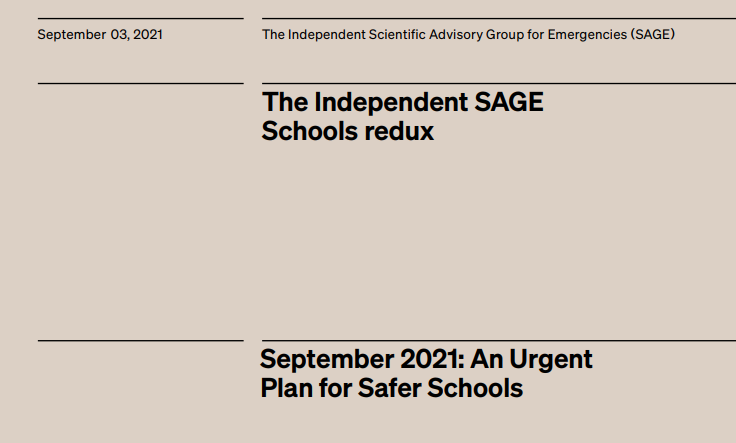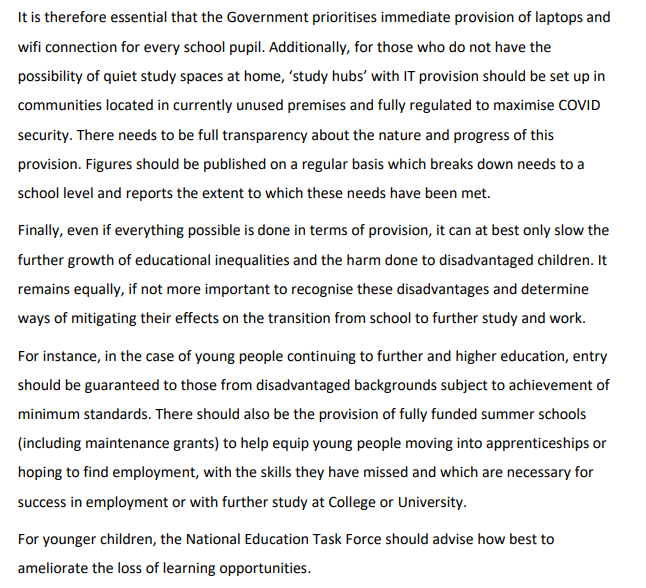THREAD on school learning lost during the pandemic in England:
Summarising this govt report from October - very depressing...
assets.publishing.service.gov.uk/government/upl… 1/11
Summarising this govt report from October - very depressing...
assets.publishing.service.gov.uk/government/upl… 1/11
The report looked at learning loss in Primary (yrs 4-6) and Secondary (yrs 7-9) school students during pandemic in Reading and Maths (Primary only) using the standardised Star Assessment method which accounts for age.
What did it find? 2/11
What did it find? 2/11
Firstly, they assessed loss in Oct 2020 after initial long lockdown & again in July 2021. There was a lot of lost learning initially - and some catch up since so things are better by summer 2021 than they were, but kids have *not* caught up (which would be zero lost months). 3/11 

Children in *primary* schools with higher rates of absence due to Covid suffered a lot more learning loss - community with less covid did better.
Primary school maths was hit harder than reading. 4/11

Primary school maths was hit harder than reading. 4/11


Interestingly, there was less of an effect in secondary schools - they were all hit by similar amounts.
Perhaps because reading is less affected by online learning once for secondary school children (more able to learn independently)?
But still a lot of lost learning. 5/11
Perhaps because reading is less affected by online learning once for secondary school children (more able to learn independently)?
But still a lot of lost learning. 5/11

Breaking it down by deprivation (using free school meals (FSM) as proxy), bigger loss for primary FSM kids in both maths and reading.
In secondary schools, non FSM pupils caught up a bit but FSM pupils lost *more* learning by July 2021 6/11

In secondary schools, non FSM pupils caught up a bit but FSM pupils lost *more* learning by July 2021 6/11


Regionally, there was a lot of variation in lost learning for primary schools - and a lot of variation on how much was caught up! Some areas (e.g. London) doing better in catching up than others. Much more catch up in primary than secondary 7/11 





Also, the UK has spent far less on catching up per pupil than some other countries - despite the government's extravagant promises.
source: Comparing education catch-up spending within and outside the UK - Education Policy Institute (epi.org.uk)
8/11
source: Comparing education catch-up spending within and outside the UK - Education Policy Institute (epi.org.uk)
8/11

It's hard to conclude anything other than that our govt's persistent lack of control of Covid, lack of support for schools trying to prevent transmission and lack of support for pupils learning online or catching up is failing millions of schoolchildren. 9/11
Finally - before the trolls weigh in - @IndependentSage has *always* advocated for schools that are *open* in as Covid-safe a way as possible. The most effective way is keeping community rates *low*. England has notably failed & schools have been very disrupted since 2020 10/11 







AND where schools were moved online because of out of control covid or where children had to isolate as cases or contacts, we advocated for multi-layered support for for disadvantaged communities & catch up funding. 11/11 



PS thank you to Bob Hawkins for producing the slides!
• • •
Missing some Tweet in this thread? You can try to
force a refresh























